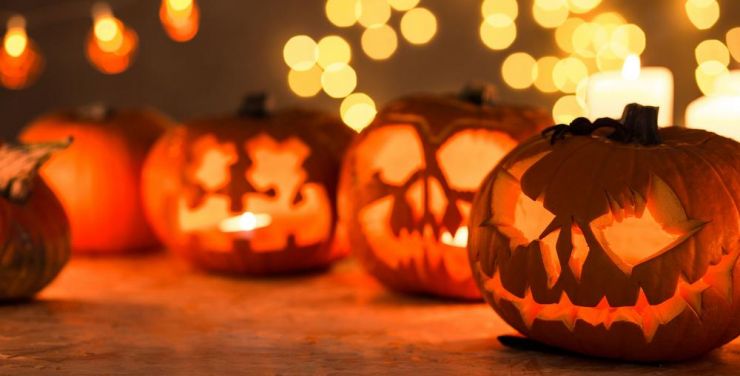What about Halloween?

Christians in the UK are mostly cautious or even hostile towards Halloween but it has become a significant cultural festival with the UK spending an estimated £430m on Halloween products this year.
Considering that we are a predominantly secular society it is a very strange cultural phenomenon. It usually involves children dressing up in strange costumes – some ghostly, some devilish and some sci-fi – and going knocking on people’s doors with “trick or treat” offers, along with themed parties for children and adults.
Why do many Christians want to keep their distance from Halloween?
It is not that we believe, like the Celts, that it is the night on which the boundaries between the living and the dead overlap, and that the deceased come back to life to cause havoc. Neither do we think that the majority who celebrate Halloween by dressing up and doing “trick or treat” or attending parties, believe in ghosts and spirits of the dead or are devil worshippers. For most of them it is a bit of fun on a par with bonfire night and Christmas.
So why do we feel uncomfortable?
I guess at the heart of it we feel nervous about participating in something which at its core is either celebrating or making light of the devil, evil spirits, ghosts and dead souls. We know that the costumes and the strange rituals mean nothing in themselves, but we believe the spiritual world really does exist and do not want to trivialise it. Halloween can only be “celebrated” as it is by contemporary culture precisely because it does not take the concept of spiritual evil seriously.
If we are honest, perhaps it also exposes our own failure at times to take the reality of the spiritual world seriously. In practice we can often marginalise or demythologise the important biblical theme of spiritual forces – the devil, demons, their spiritual power and evil intent.
Rather than reacting against Halloween just as a matter of principle, it might be better to take the opportunity to consider more carefully what the Bible teaches about spiritual evil. We need to regain a proper biblical theology of Satan and the spiritual powers of evil.
Some Christians just want to embrace the whole thing and use it as an opportunity for witness and relationship building. We must be careful not to judge this desire harshly as if it was as bad as embracing evil itself.
Some want to greet children knocking on their doors with sweets because we want to be generous like our Father is generous to us (Matt 6:25ff). Some, having given them sweets, will then also give a tract, explaining that they want them to know the best treat – Jesus, who has defeated the powers of evil. What is there not to like about that? But I wonder again whether in the context it will make much of an impact.
Some want to somehow sanctify it by hosting or attending a “light party” or similar on Halloween night. There might be value in that, but to me it seems like trying too hard to compete with the real Halloween and might be signalling to our children that we don’t want them to miss out. The subtleties of our rebranding it might be rather lost on them.
Could it rather be a night of the year when we model the reality to the family that discipleship sometimes means sacrifice? We can teach our children that following Jesus will sometimes mean feeling different and like strangers in this world (1 Peter 1:1). Could Halloween be a chance as a family to stand apart?
But whatever you do, it is a great opportunity to talk with your family and friends about the reality of evil and the triumph of Christ.
Graham Nicholls is Director of Affinity
Related articles
Stay connected with our monthly update
Sign up to receive the latest news from Affinity and our members, delivered straight to your inbox once a month.



